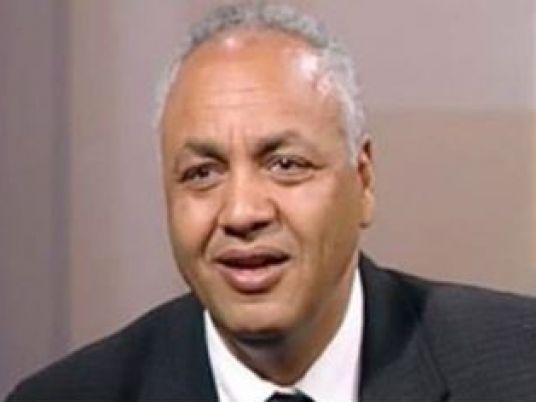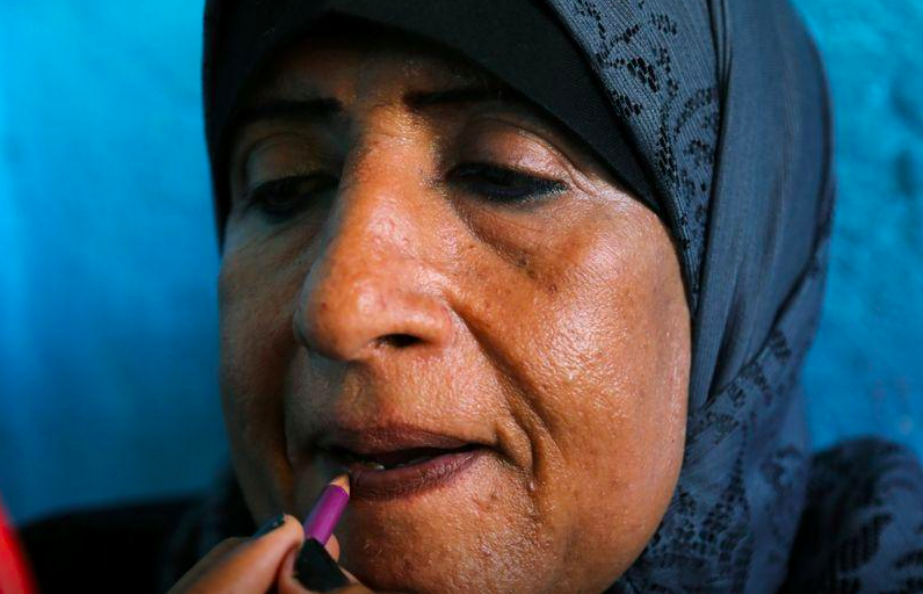
With recent discussions about psychological disorders, intersex and deviant behavior, Egyptians are not aware of the phenomenon of so-called sex reassignment surgery or Gender Identity Disorder (GID), the distress a person experiences with the gender they were born with.
There are those who accuse people experiencing these phenomena of simply being “perverts,” but the situation is in fact completely different. While the “pervert” does not resort to sex change operations, those who do are people born with an imbalance due to a hormonal disorder in the brain which afflicts the child before birth. With regards to intersex persons, these children are born with clear congenital defects, in which there is a reconciliation between the mind and the body, which makes an operation easy to perform.
Doctors assert that GID persons have the right to undergo transgender operations but the government refuses to legalize them. The phenomenon is also surrounded by social stigma and Egypt’s al-Azhar, the Sunni Muslim world’s most prominent religious institution, does not grant approval for patients to undergo these operations.
In a series of forthcoming articles published over the coming days, Al-Masry Al-Youm, the sister Arabic-language publication of Egypt Independent, opens up the gender identity disorder subject to delve deep into the psychological suffering transgenders go through, social rejection, medical perspective and Islam’s stance on gender identity.
Between the hospitals of Cairo’s Kasr Al-Aini, Al-Hussein University and Al-Demerdash, persons with GID stand in cue waiting for medical checkups hoping that doctors will help to relieve them of their suffering. They wish that they will be granted approval to undergo an operation within a few hours, which would end years of suffering.
They look at each other to make sure that they share the same hardship, while also showing signs that fear controls them. Time passes slowly until someone begins to talk to someone else. The fear begins to melt away and the two begin exchanging experiences, as well as phone numbers. “As long as we remain a group and we recognize our right and the government recognizes us, we can undergo operations and prove our identity,” one of them said.
Public hospitals only receive GID patients on certain days of the week. On Sundays, they can go to Al-Hussein University Hospital, on Mondays to the Kasr Al-Aini Hospital, while the Demerdash Hospital receives them on Tuesdays.
Sometimes a person goes to the hospital and tries to convince everyone in their surroundings that they in fact are not “perverts,” even when talking to those who are closest to them, but often to no avail.
Al-Masry Al-Youm approached one of them who said that some patients take their relatives with them to a hospital to convince them of their health condition in order to help them get treatment, while other families refuse.
In the three hospitals treating GID patients the scene is similar except for the floor number on which the clinics are located. In the al-Hussein University Hospital, the clinic is on the fourth floor, while in Kasr Al-Aini it lies on the first floor. In the room where GID patients wait for their psychological rehabilitation session, they look at each other to make sure that all are there for the same reason. They talk, exchange experiences and the different paths they took to finally receive treatment. They also agree to work together to protect them from society’s rejection, which each of them feels. They tell each other that they are not “perverts” and agree to help each other until they get official documents proving that after they undergo the sex change operation.
In the clinic, the women hide their femininity by wearing men’s clothing, speaking with deep voices and smoking cigarettes, while also trying to imitate typically male behavior in the way they sit and joke. The men wear women’s clothing, speak softly to conceal their masculinity, walk quietly and wear makeup. When entering the checkup room, each one attempts to prove that he or she is entitled to the type of transgender operation they want without waiting for their diagnosis by the doctor.
According to one doctor, the brain of people identifying as transgender gives an opposite signal to their genitals to what is considered normal. The male child feels that he is a female who prefers to wear dresses, play with dolls and wear makeup, while the female child likes to play with balls and pistols and reverts from games conventionally enjoyed by girls. When they reach adolescence, both sexes reject the physiological changes associated with puberty whereby the boys feel feminine and are attracted to other boys and vice versa regarding the girls.
The difference between a patient with GID and intersex persons is that the mind of those with GID completely rejects the body, while there are no birth defects. The men are full of masculinity and have the ability to marry and have children, and vice versa for the women. As for intersex, the person is born with clear congenital defects and there is a reconciliation between the mind and body, which means that a surgical operation can easily be done. The transgender GID patient undergoes psychiatric treatment for at least two years to reconcile the mind with the body, followed by an evaluation by a committee from the Doctors Syndicate that decides whether or not to perform the medical procedure.
Despite their knowledge about the operations only changing their physical attributes without changing anything in essence, transgender persons still insist on carrying out the operation.
Mustafa
“His uncle wants to kill him […] and I wish to get him treatment for his perverted thoughts,” Mustafa’s mother says.
Mustafa explains that he is surrounded by people who accept him and he even has a romantic relationship with someone. “My close friends sympathize with me and I’m in a love story over the phone with another man.”
With tears in her eyes, Mostafa’s mother speaks about his son’s condition. “I’m not satisfied with my son, I’m proceeding with the treatment, but I won’t let him turn into a girl,” she says.
His mother moved from where they lived in Ismailia to Cairo in search for treatment for her only son. She never expected that she would be taking her 20-year old son to psychiatrists and GID doctors at the Kasr Al-Aini hospital. But this is what she has resorted to after failing to convince him to abandon his thoughts about changing his sex.
“I never expected that the day would come when my son would tell me that he wants to change sex […] I resorted to his uncle to stand beside me but he threatened my son [saying he would] butcher him,” she asserts.
As she was worried that his uncle would follow through on his threat, they decided to move. “We moved from our house away from our relatives,” she says, adding, “I had no choice but to go with him to Kasr Al-Aini hospital to be checked by the doctors there. I was surprised that Mustafa was full of masculinity, and that the male hormone analysis [showed that his testosterone levels] were high, but his doctor told me his brain has a desire for sex conversion.”
For two years, Mustafa’s mother has been going back and forth between Ismailia and Cairo. She has not stopped praying that her son abandons what she sees as his “perverted thoughts,” especially after her relatives broke off contact with her.
“There is no one to help you in your plight, I sold everything I own [to pay for] Mustafa’s treatment after everyone abandoned me and I hope he recovers and takes the responsibility of the family.”
One look at the young man, who calls himself “Tasnim”, shows his masculine features which he has tried to hide with his long hair, soft hands, painted eyebrows, eye lenses, the change of the tone of his voice, and the way he walks. His mother says that all of this caused him many problems.
Mustafa explains that he is fed up with how people treats him and that the treatment that he has received is not working.
“I’m tired of the looks and words people say to me. The treatment is not affecting me. I began to feel feminine when I was a student in the sixth grade and began to wear girl’s cloths and people dealt with me as if I was a girl not a boy,” he says.
“Now I have a job and I can only wear men’s clothes [there] but some people who are close to me know my story and sympathize with me and treat me as a girl,” Mustafa continues.
“I am currently in relationship with a respectable person but I don’t know what to do because we are [only] talking on the phone, but he wants to meet me and I refuse.”
“He likes the character of the girl who speaks with him in the phone, and I can’t face him because I think he wouldn’t accept my situation. I need him with me in this time, because I feel feminine feelings and can’t live [in a] masculine [way],” Mustafa says.
He explains that he went to Al-Azhar where he met a doctor, Ali Khalifa, who first mocked him for coming. But after he explained that the Demerdash hospital referred him there, Khalifa sent him to another authority at Al-Azhar.
“He said that there is no fatwa [religious edict] that allows for sex change because you are a case of xy, not xxy, and there is no fatwa for your case,” Mustafa says.
Samar
Deception was the only way for Samar to marry the man who proposed to her. He was married with kids and this was her chance to get him since he wouldn’t want to have another child. She had an operation several years ago to change her sex from male to female. She used to be called Samir, but changed her name to Samar.
Samir’s story began at the age of six when he started showing signs of walking, playing and talking in a typically feminine way. It was not difficult for him to receive the treatment that he wanted. His family found out about what he was going through and tried to cure him for more than 10 years, but to no avail. Despite the fact that he seemed masculine his mind and heart refused and became more and more feminine.
After he started showing attraction towards men his father decided that he should have the sex change surgery. After the operation, he began to take female hormone medicine that changed his tone of voice and changed him in other ways towards being more feminine.
“After the procedure, everyone was dealing with me as a girl but the problem was in issuing the National Identity Card. To the state authorities I’m a man […] but my father made a trick to get my ID card,” Samar says.
She explains that her father was able to get official papers issued for her using her sister’s nickname.
“After a while, and like most women, men came and proposed to marry me. I married at the age of 24 a divorced man with children, and this was good for me as I will not be able to have children, and he accepted to marry me,” Samar says.
“Before [we got married] I told my husband that I have a defect in the genitals and I’m unable to reproduce and he understand the issue and we have been married for three years.”
Ali
Since she was in the first year of preparatory school, Aya began to rebel against the sex she was born with. She started wearing men’s clothes, stopped wearing earrings and hid all signs of her femininity, even in the way she talked, walked and joked.
Aya, who now goes by the name Ali, is from Dakahlia province, is 17 years old and is a student in the third year of secondary school. He used to be a lean girl who was good at football. Every Sunday, he goes to the Al-Hussein Al-Hussein University Hospital for treatment and psychological rehabilitation. Despite being financially capable of seeking treatment abroad, he has decided to complete his treatment in Egypt.
“The issue started with me at an early age. I was 6 years old, and at the time I was being treated by a speech therapist because of a speech problem. Because of fear that my family may not have understood the situation, I talked to the doctor about my feelings. When I told my father he said that this is a period which will pass,” Ali explains.
As he grew older he told his mother about his identity crisis, who was open to hearing about it and agreed to take him to a psychiatric clinic.
“When I turned 11, I told my mother that I wanted to get treatment, and she was welcoming. We went to a psychiatrist, but unfortunately she dealt with the matter as a merchant and took my case for money. After a year and a half of treatment and costs, she told my mother that I need to be admitted to a psychiatric institution, and my mother refused. I am from a famous and rich family in Dakahlia and very open minded,” Ali continues.
However, when he told his father, he did not at first accept his problem and his teachers in school also gave him a hard time.
“At first my father refused the treatment and the procedure for fear of the surgery and what people may say about me. But my mother understands it because she works as a psychologist in one of the Arab countries, and most of those around me know my story, my parents or friends. My friends in school treat me well, but the problem is with the teachers, they are the ones who look at me with bad looks.”
“I am able to undergo the procedure outside Egypt, and at any cost, but I am not on the wrong side or a coward to do so. The people are wrong, despite all the difficulties I may face.”
On marriage and reproduction, Ali explains, “I do not have the subject of marriage and reproduction in mind, all I want is that I live my life without interference from anyone.”
Mona
Mona does not want to undergo sex change surgery because if she did, she would risk losing her children. But she is looking for a medical certificate proving that she is “ill”.
Mona’s case is different from the others and brings to mind the Egyptian film El-Sada El-Regal (Gentlemen) by Mahmoud Abdelaziz and Maali Zayed, in which the heroine transforms into a man because of the persecution she faces in society.
The challenges that Mona has faced has made her want to get official documentation that she has GID in order not to be accused of being insane.
Mona’s bodily figure reveals subtle signs of masculinity; she has a strong body and wears men’s clothes, even though she also wears a veil.
“I am a man and not a woman, this is the suffering I live in,” she says. “I’m married and I have a son and a daughter in secondary school. Since my childhood I’ve felt that I’m a male, not a female,” she goes on, adding, “I’ve tried many times to be natural and act like a woman, I wear women’s clothes, I put on makeup, and I loved a man and I married him and gave birth, but all this did not prevent my feeling that I’m a man.”
Mona explains that she had trouble reconciling her feelings of being a man when she had children. “I’ve never felt the sense of motherhood, and I always felt very stressed during breast feeding. I’m in a constant conflict with my mind which tells me: it is not your role to perform the duties of the house as a woman, but your real role is spending and protection like a man,” she says.
With age, Mona has been feeling more and more as a man and has been abused due to her situation.
“The older I grow, the more my masculine feelings grow, and this has given constant problems in my marriage with my husband and family. They beat me to make me stop what I want, no one can understand me.”
Her situation has reached a point of no return and she has even contemplated taking her own life.
“Everyone rejects my inner feelings, which led me to think a lot about suicide. I can’t live in a female body with a brain and feelings of man so I decided to get treatment at this age to prove to everyone around me that I’m a GID patient and I was right during all this time.”
“I do not want to undergo the procedure because I am married and have children, and the community has not yet understood the transgender [issue]. All I want is a medical certificate confirming my GID illness,” Mona explains.
Guevara

Mohamed Allam, also known as Guevara Allam, who changed from female to male.
One of the most famous sex change cases having been spread in the media is Mohamed Allam, also known as Guevara Allam, who changed from female to male, and is the only case who was able to procure an ID card and a driver’s license with his new identity. However, he still has had difficulty in his dealings with the compulsory military service and the issuance of a passport in his new name and sex.
Guevara says he lived a period of his life as a “girl” and had to go through sexual reassignment surgery based on the opinions of psychiatrists, doctors, the Gender Reassignment Committee of the Egyptian Medical Syndicate and a fatwa from Al-Azhar, all of which took 31 years to complete.
“Then came the step to get official documents issued to prove the new identity and it was a very difficult period. I was scammed by many people in it, and after my failure to get it issued, I decided to undergo the procedure. It was in the Kasr al-Aini hospital by Dr. Mohamed Abdul Rasul, Professor of Urology,” Guevara says.
“After that I got the ID card issued, and there was a difference between the two times [when it was issued],” he says. Immediately after the procedure, ”I met no difficulties, on the contrary, I found cooperation from all state bodies I needed, including the Criminal Investigation Department in Menoufia, and I was directed to the main administration in Cairo, and met Major Mohammed al-Deeb who understood my case easily. I got the Criminal Record document issued, and I also succeeded in getting the driving license issued without any problems,” he goes on.
All was however not well as he encountered a number of other problems along the way, including getting his mother’s pension withdrawn.
“Things did not go well all the way. There were some obstacles and problems. The Social Insurances Organization stopped my mother’s pension. I was receiving my dead father’s pension from 2008 until 2016, but unfortunately and unintentionally, I was the reason they stopped my mother’s pension. I got my male ID card issued in 2016, but the Social Insurances Organization did not understand this and stopped my pension retroactively,” Guevara explains.
“Now I’m required to pay what I dispensed with during that period, despite being a girl, and this was confirmed with the insurances and in the official papers. The strangest thing of all is that they were not satisfied with that, and they cut off my mother’s pension without justification until they decide my case,” he adds.
The other major problem Guevara encountered was to get a passport issued in his new name.
“The other problem I faced was the issuance of the passport. I wanted to perform Umrah [a pilgrimage to Mecca] and I had to bring a certificate to [explain] my situation from the compulsory military service, which was very difficult, and has not been resolved yet,” Guevara said.
He is critical of the withdrawal of Al-Azhar from the Gender Reassignment Committee of the Egyptian Medical Syndicate, and the negative effect of this on patients who want to convert their sex.
He pointed out that he was the last case reviewed by the committee before it stopped its work a few years ago. Guevara demanded at the same time that Azhar be excluded from the approvals to such surgeries as he thinks that this matter is strictly medical.
Guevara further says that he faces no prosecution from anyone. “The majority treats me excellently, but there are some who give themselves the right to judge the circumstances of others. There are patients who lose their families because of the people,” he adds.
Celebrities with GID
Gender Identity Disorder is not confined to a few unknown persons. A number of Arab and foreign celebrities also have it.
One of the most famous Egyptian characters who suffered from this disease was the actress (whose real name was Tariq Al-Taweel) playing the role of Miss Insherah in the film Al-Nazer (the headmaster). She underwent gender reassignment surgery abroad and called herself Hanan Al-Taweel.
She played the role of Korea the dancer in the film Askar Fel Moaskar (Camping in the Camp), and another role in the film 55 Esaaf (Ambulance 55), until she died of unknown reasons.
Among Arabs having undergone the surgery is the Kuwaiti actress known as Bashayer. She changed from male to female and played several roles in the series Sadikaty Al-Azizat (my dear friends) and Sakf Wahed (one roof). The
Moroccan dancer Nour also underwent the procedure as well as the Lebanese singer Haifa Magic and the Lebanese actress Raghda Salama.
Non-Arab celebrities having changed their sex include Hollywood stars Caitlyn Jenner, Carmen Carrera, Laverne Cox, and Alexis Arquette. In the American media field, Janet Mock, editor of People Magazine, underwent the procedure, while in fashion, Amanda Lepore, Isis King, Canadian Jenna Talackova, Brazilian Lea T, Indian Anjali Lama, Australian Andreja Pejić, and Austrian singer Conchita Wurst also did it.




